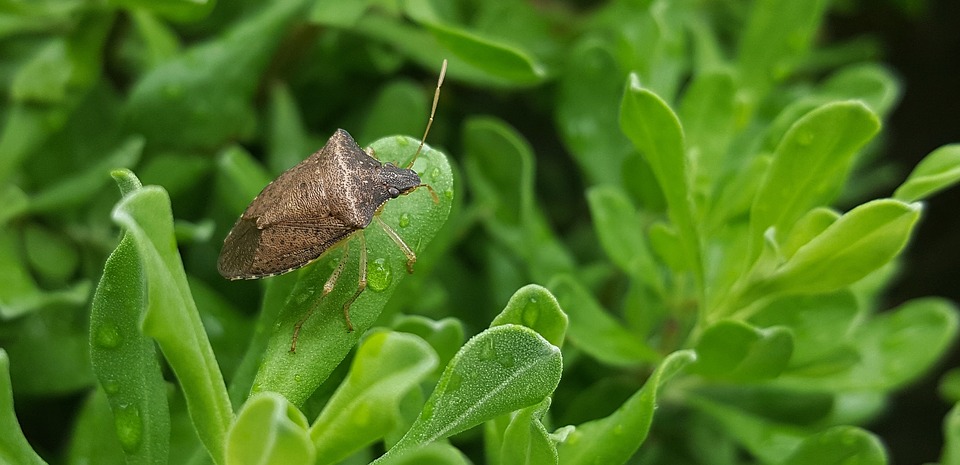Do Bed Bugs Jump?
Do bed bugs jump? The short answer is no, bed bugs do not jump or fly; they crawl. They do move quickly, however, so they can be difficult to catch.

Do bed bugs jump? The short answer is no, bed bugs do not jump or fly; they crawl. They do move quickly, however, so they can be difficult to catch.

Can bed bugs jump? Well, they can certainly give you the heebie-jeebies. The idea of having bugs in your bed is disturbing, and worrying about whether they can jump or fly and land on you can be even more bothersome. We’ve got good news and bad news when it comes to whether bed bugs can jump:
Don’t worry, though! We’ve got the information you need to keep these creepy crawlies away from you and your bed.
We know that bed bugs don’t jump or fly, which is a relief. They don’t have wings, and they don’t have strong back legs that would enable jumping.
What they do is crawl. They shimmy along surfaces that are partially or completely hidden, such as along the seams of mattresses, across the back of headboards, and in the grooves of a bed frame. They can scurry pretty quickly, so if you see one in motion, you might need to move fast to catch it. At night, they emerge from their hiding places to feed on whomever is sleeping nearby.

If bed bugs can’t jump, then, you might wonder how they manage to spread so easily. The answer is that they hitch a ride to wherever they end up.
Here’s how it works:
An unsuspecting person spends some time at a home or business establishment that has a bed bug infestation. Remember that you don’t necessarily have to sleep there; bed bugs can be hiding in chairs, carpeting, couches… you get the idea. Maybe you put your purse or briefcase on the floor or on an upholstered chair. A female bed bug crawls into your bag.
When you get home, you put the bag on your bedroom floor, where the bug emerges, saunters over to your bed or some other furniture, and lays some eggs. Females can lay up to seven eggs daily. If a male bug accompanied her on her journey, you can see how this will lead to an infestation in no time at all.
Those eggs hatch about two weeks later, and you’ve got yourself a few (or a lot of) bed bugs. They multiply quickly.
Then you invite a friend over, who places her coat on your bed. You see where this is going. Bed bugs spread rapidly with no jumping or flying necessary.

If you’ve encountered a brownish bug on your bed that’s jumping or flying, the good news is that it’s not a bed bug. The bad news is that you have an unidentified bug in your bed. Here are some of the possibilities as to what it might be:
If you’ve determined that the bugs you’ve seen are not flying or jumping, now it’s time to think about whether they’re actually bed bugs. We have a fairly comprehensive guide on how to check for bed bugs that you should look at.
To summarize that process, you’re going to want to look for telltale signs (rust-colored spots on the sheets, insect shells/casings, and actual live bugs in hidden crevices.
In addition, bed bugs have a specific biting pattern that’s different from many other insects. If you get bitten by a mosquito or a spider, you’ll generally have a bite here and there in no discernible pattern. When you are bitten by bed bugs, however, the bites will usually show up in a line, a cluster, or a zig-zag pattern. They don’t just bite you once and get on with their day; instead, they bite, walk a little, bite, walk a little, and so on.
Bed bug bites can be quite itchy and they can take a week or two to clear up. If you have an infestation, you probably won’t get all of your bites in one day, though, so you’ll see clusters popping up on exposed skin over a period of time. These bites typically don’t get infected and very rarely cause a serious allergic reaction. They’re unpleasant, though, so you’ll want to get the issue taken care of sooner rather than later.

Once you’ve determined that the insects plaguing you are, in fact, bed bugs, there are some steps you’ll want to take immediately.
First, strip your bed. Toss the sheets in the wash on high. Once they’re done, put them in the dryer on high and put your blankets and comforter in the washing machine. Now isn’t the time to try to save energy by using your clothesline; the sun won’t kill bed bugs or their eggs. Put the items in the dryer.
Next, use your vacuum cleaner on the mattress, paying special attention to the seams and edges. Take off the mattress and do the same with the box spring or platform. If you can, remove that and vacuum all of the nooks and crannies around the frame. Finally, vacuum the carpet.
Will this process remove all of the bed bugs? No, it will not. But it will buy you a little time (as in a day or two) before a professional exterminator comes to take care of the problem.
Can you DIY bed bug remediation? Probably not. It would be possible if you were willing to vacuum very frequently while also using chemicals, but keep this in mind: An exterminator is well-practiced at using chemical pesticides safely. They will also usually guarantee their work for some period of time. Using substances like vinegar, bleach, or rubbing alcohol is not effective and will just prolong the problem.
In conclusion, if you see insects in your bed that are jumping or flying, they’re not bed bugs. Crawling bugs that bite you in a zig-zag or clustered pattern very well might be. Bed bugs are yucky, but they’re not dangerous in the vast majority of cases. Consulting a professional will help you mitigate the problem sooner rather than later.
Featured image by Gilles San Martin / Flickr
Article image by ivabalk / Pixabay
Article image by Brett Hondow / Pixabay
Article image by stevepb / Pixabay

If you’ve been up scratching at night, you might have one question: Can permethrin kill bed bugs? The answer is yes, it certainly can.

Can bed bugs make you sick? They can, in some cases. If you’re dealing with bed bugs, you could also be at risk for allergies, itching, insomnia, infections, and more.

With so many uses, peppermint oil is a powerhouse when it comes to reducing various physical maladies and cleaning. But does peppermint oil kill bed bugs?

Vinegar has a lot of uses in the home, and it’s often touted as a way to repel or even kill insects. But does vinegar kill bed bugs? Let’s find out.

Does Raid kill bed bugs? After all, it makes quick work of ants, cockroaches, and other household pests. It’s a common question and one that has a multifaceted response.